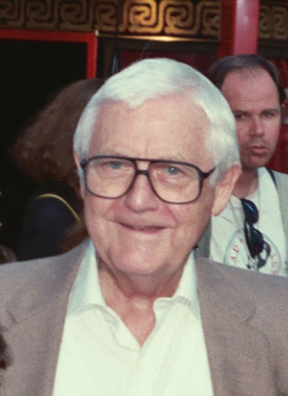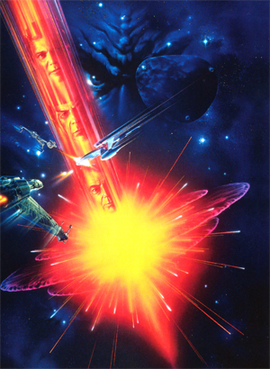A major contributor to this article appears to have a close connection with its subject.(August 2010) |
F. Hudson Miller is a motion picture sound editor and designer for feature films in Hollywood California.
A major contributor to this article appears to have a close connection with its subject.(August 2010) |
F. Hudson Miller is a motion picture sound editor and designer for feature films in Hollywood California.
A graduate of the Interlochen Arts Academy in Interlochen, Michigan, Miller earned a BA in American Studies from Grinnell College in Grinnell, Iowa. He continued his studies at the University of Southern California USC School of Cinematic Arts, where he earned an MFA in motion picture production.
Miller's credits include Déjà Vu , National Treasure , Man on Fire , Patriot Games , The Chronicles of Narnia: The Lion, the Witch and the Wardrobe , Armageddon , and Star Trek VI: The Undiscovered Country . In 1991, he was nominated for an Academy Award in Sound Effects Editing for Star Trek VI: The Undiscovered Country. He has also worked on five other films that received Academy Award nominations, of which The Hunt for Red October and Pearl Harbor each won the Oscar. [1]
Hudson's other professional activities include eight years on the Board of Directors of the Motion Picture Editor's Guild [2] nine years as Vice President of the Motion Picture Sound Editors (the professional organization of sound and music editors). In 2005 he joined the Motion Picture Advisory Board of the Interlochen Center for the Arts. [3]
In 2007, Miller partnered with Suhail F. Kafity to form Rhapsody Post, a motion picture sound editorial company.
He is also the author of "The Outsourcer's Apprentice" in the Editors Guild Magazine. [4]

The Academy of Motion Picture Arts and Sciences is a professional honorary organization in Beverly Hills, California, U.S., with the stated goal of advancing the arts and sciences of motion pictures. The Academy's corporate management and general policies are overseen by a board of governors, which includes representatives from each of the craft branches.

Robert Earl Wise was an American filmmaker. He won the Academy Awards for Best Director and Best Picture for his musical films West Side Story (1961) and The Sound of Music (1965). He was also nominated for Best Film Editing for Citizen Kane (1941) and directed and produced The Sand Pebbles (1966), which was nominated for Best Picture.

Star Trek VI: The Undiscovered Country is a 1991 American science fiction film directed by Nicholas Meyer, who also directed the second Star Trek film, The Wrath of Khan. It is the sixth feature film based on the 1966–1969 Star Trek television series. Taking place after the events of Star Trek V: The Final Frontier, it is the final film featuring the entire main cast of the original television series. The destruction of the Klingon moon Praxis leads the Klingon Empire to pursue peace with their longtime adversary, the Federation; the crew of the Federation starship USS Enterprise must race against unseen conspirators with a militaristic agenda.

Frank Wilton Marshall is an American film producer and director. He often collaborates with his wife, film producer Kathleen Kennedy, with whom he founded the production company Amblin Entertainment, along with Steven Spielberg. In 1991, he founded, with Kennedy, The Kennedy/Marshall Company, a film production company. Since May 2012, with Kennedy taking on the role of President of Lucasfilm, Marshall has been Kennedy/Marshall's sole principal.

Founded in 1950, American Cinema Editors (ACE) is an honorary society of film editors who are voted in based on the qualities of professional achievements, their education of others, and their dedication to editing. Members use the post-nominal letters "ACE". The organization's "Eddie Awards" are routinely covered in trade magazines such as The Hollywood Reporter and Variety. The society is not an industry union, such as the I.A.T.S.E., to which an editor might also belong. The current president of ACE is Kevin Tent, who was elected in 2020.
Ralph Frederick Winter is an American film producer who has helped to produce blockbuster movies such as the X-Men, Fantastic Four and Star Trek series as well as I, Robot and Planet of the Apes. His films have grossed collectively over $2 billion (USD).
Herbert Franklin Solow was an American motion picture and television executive, screenwriter, motion picture and television producer, director and talent agent.
The Motion Picture Editors Guild is the guild that represents freelance and staff motion picture and television editors and other post-production professionals and story analysts throughout the United States. The Motion Picture Editors Guild is a part of the 500 affiliated local unions of the International Alliance of Theatrical Stage Employees (IATSE), a national labor organization with 104,000-plus members. There are more than 8,000 members of the Editors Guild.
Greg Jein was a Chinese American model designer who created miniatures for use in the special effects portions of many films and television series, beginning in the 1970s. Jein was nominated for an Academy Award for Best Visual Effects for his work on the films Close Encounters of the Third Kind (1977) and 1941 (1979), and also nominated for an Outstanding Special Visual Effects Emmy for his work on Angels in America.
Robin Stender Swicord is an American screenwriter, film director, and playwright, best known for literary adaptations. Her notable screenplays include Little Women (1994), Matilda (1996), Practical Magic (1998), Memoirs of a Geisha (2005), and The Curious Case of Benjamin Button (2008), the latter of which was nominated for the Academy Award for Best Adapted Screenplay and the Golden Globe Award for Best Screenplay. She wrote and directed the 2007 film The Jane Austen Book Club.
Harold Frank Kress was an American film editor with more than fifty feature film credits; he also directed several feature films in the early 1950s. He won the Academy Award for Best Film Editing for How the West Was Won (1962) and again for The Towering Inferno (1974), and was nominated for four additional films; he is among the film editors most recognized by the Academy of Motion Picture Arts & Sciences. He also worked publicly to increase the recognition of editing as a component of Hollywood filmmaking.
Lawrence Konner is an American screenwriter, producer and film director. Konner has written over twenty-five feature films, including Mona Lisa Smile, Planet of the Apes, The Legend of Billie Jean, The Jewel of the Nile, and Star Trek VI: The Undiscovered Country. Konner’s writing for television spans over forty-five years. His works include the HBO series The Sopranos, for which Konner earned an Emmy nomination in 2001, and Boardwalk Empire, for which he received the WGA Award for Best New Series in 2010. He was also nominated for an Emmy for his work as writer and executive producer on the 2016 miniseries Roots. Other television credits include Family and Little House on the Prairie.
Donn Cambern was an American film editor with more than three dozen feature film credits. His editing of Romancing the Stone (1984) was nominated for an Academy Award for Best Film Editing along with fellow editor Frank Morriss, and his editing of Easy Rider (1969) has been noted as particularly innovative and influential. He was awarded the American Cinema Editors Career Achievement Award in 2004.
Steven-Charles Jaffe is an American film producer, director, and screenwriter known for his work on such films as Motel Hell (1980), Near Dark (1987), Strange Days (1995), and the Best Picture-nominated romantic fantasy film Ghost. He is a long-time friend and collaborator of directors Nicholas Meyer and Kathryn Bigelow, and has worked with them on films like Time After Time (1979), Star Trek VI: The Undiscovered Country (1991), and K-19: The Widowmaker (2002). He is a member of the Academy of Motion Picture Arts and Sciences.

Todd Boekelheide is an American composer based in the San Francisco Bay Area, best known for his work scoring documentary films. He won an Academy Award for Best Sound and was nominated for another in the same category.
George Watters II is an American retired sound editor with more than 80 feature film credits. He has won the Academy Award for Best Sound Editing twice, for The Hunt for Red October (1990) and for Pearl Harbor (2001).
Cecelia Hall is an Oscar-winning sound designer and sound editor. She became the first woman to be nominated for an Academy Award for Best Sound Effects Editing in 1986 for Top Gun and went on to win the Oscar for The Hunt for Red October, a 1990 film for which she also received a nomination for the BAFTA Award for Best Sound at the 44th British Academy Film Awards.
Mark Stoeckinger is an American sound editor. He has over 80 film credits. In addition to 3 Oscar nominations, he has been nominated for the Motion Picture Sound Editors a total of 10 times, winning once with Gladiator.
The music for the 1991 science fiction film Star Trek VI: The Undiscovered Country directed by Nicholas Meyer, based on Star Trek: The Original Series and the sixth film in the Star Trek franchise, features an original score composed by Cliff Eidelman. He produced a darker score that accentuates the film's theme in contrast to the epic themes in previous Star Trek films. The score was well received by critics and led Eidelman to being a prominent composer at that time.